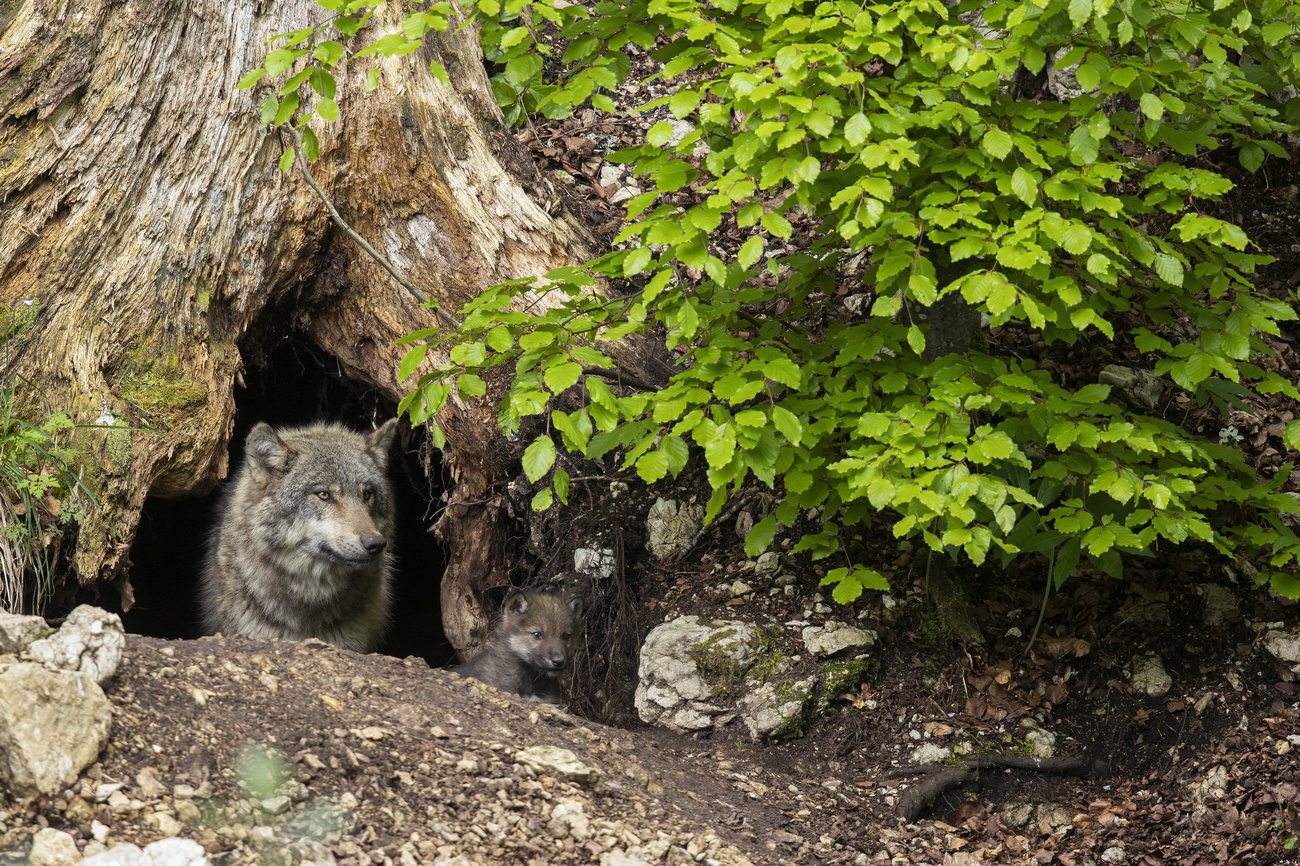
Wolf cull surprisingly efficient in Swiss canton

The Swiss canton of Valais has already reached half of its wolf hunting target, shooting 17 of the animals in 18 days since active wolf hunting opened on December 1.
The Department of Hunting, Fishing and Wildlife was “satisfied” with this result, it announced on Monday at the request of the Keystone-SDA news agency.
+ How many wolves are good for Switzerland?
In November, the State Council declared that the operation would be a “great success” if the canton managed to get “between ten and 15” in the next two months. With 17 animals killed, the canton has now shot half of the wolves it was targeting in just under three weeks.
According to the canton’s count on Monday, seven wolves were killed from the Augstbord pack and another seven from the Eringer pack. Two wolves came from the Nanz pack and one from the Toules pack.
Fourteen animals were shot by professional gamekeepers, three by hunters who had a special permit.
The surprise effect “certainly played a role in this result, especially in the first kills,” said the head of the Department of Hunting, Fisheries and Wildlife, Nicolas Bourquin, when asked by Keystone-SDA. He also highlighted “the great effort of the people who were out there every night”.
The success of hunts depends on the snow conditions, the proximity of roads, the movements of the wolf’s prey such as deer or the presence of federal hunting areas in which shooting is prohibited.
The head of the hunting authority also noted that of the 17 wolves killed, 13 were young animals and four were adults. This corresponds to the federal government’s recommendations to target young animals first.
On November 1, the Federal Council temporarily brought the first part of the amendment to the Hunting Act into force. This gave the cantons the opportunity to implement “preventative regulatory measures” as early as December and January, provided they receive the approval of the Federal Office for the Environment.

More
When it’s legal to shoot the wrong wolf
During these two months, Valais was given permission to kill more than half of the 13 packs that move on its territory, ie at least 34 out of around 100 wolves. The packs targeted were Nanz, Augstbord, Hérens-Mandelon, Le Fou-Isérables, Les Toules, Les Hauts-Forts and Chablais.
At the beginning of last week, however, the Federal Administrative Court blocked the “preventive killing” of the three packs Les Hauts-Forts, Nanz and Le Fou-Isérables following a complaint from several environmental organisations.
They are of the opinion that the federal government and the cantons are disregarding the “principle of proportionality and the important role that predators play in the forest ecosystem”. The environment ministry has now applied to the Federal Administrative Court to have the suspensive effect lifted.
This news story has been written and carefully fact-checked by an external editorial team. At SWI swissinfo.ch we select the most relevant news for an international audience and use automatic translation tools such as DeepL to translate it into English. Providing you with automatically translated news gives us the time to write more in-depth articles. You can find them here.
If you want to know more about how we work, have a look here, and if you have feedback on this news story please write to english@swissinfo.ch.

In compliance with the JTI standards
More: SWI swissinfo.ch certified by the Journalism Trust Initiative





























You can find an overview of ongoing debates with our journalists here . Please join us!
If you want to start a conversation about a topic raised in this article or want to report factual errors, email us at english@swissinfo.ch.